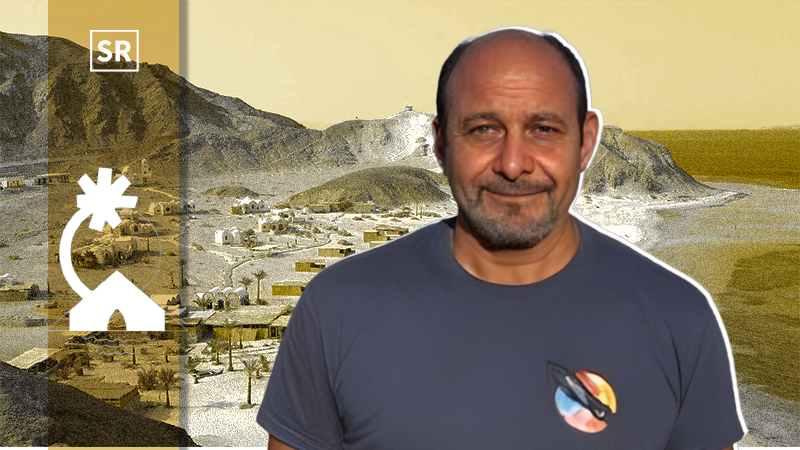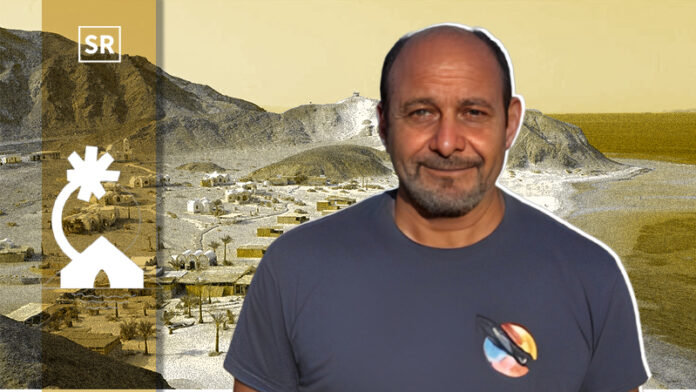
When Vision Met Values; Founder Who Chose Harmony Over Hype
In a world where luxury often outshouts legacy, Basata was born in 1986, founded by Sherif El Ghamrawy on the Sinai coast of Egypt.
He wasn’t chasing hotels with marble lobbies or five-star indulgence; instead, he envisioned something deeper: a place where people could connect with nature without excess, where simplicity was not deprivation but richness. He wanted to provide an experience where, more than luxury was eco-ethics, authenticity and a sense of community trust. And so came Basata — the first eco-lodge in the Middle East, a sanctuary where the stars serve as a chandelier and silence supplies the soundtrack.
Read also – The Story of Stoyana Natseva and Happy Life Academy Transforming Lives.
Crafting Experiences Beyond Tourism; More Than Just a Stay
The vast majority of travel accommodations are either luxury resorts (expensive, isolating, environmentally costly) or hostels filled with relics of the 20th century (cheap, but also uncomfortable, unsustainable, and disconnected from local culture). Basata comfortably straddles the middle—providing luxury eco-living at an affordable price.
This is evident in its mud-brick chalets, bamboo huts, and camping excursions, all created to complement and not overpower, the Red Sea environment. Guests who are marking life’s benchmarks, honeymoons, anniversaries, personal retreats — not with excess but with thoughtful simplicity.
What gives Basata its edge is its commitment to ecological soundness and cultural sensitivity. No plastic waste, no blaring nightlife, just comfort that is skin safe for the planet and soul safe for the traveler.
This philosophy makes Basata more than a lodge; it’s a curator of conscious moments. In a tourism-driven area that has too often resulted in the scarring of the land, Basata refashions travel as an act of preservation, memory, and cultural dignity.
Read also- Leading with Soul: Ignacio Bonasa’s Journey from Corporate Power to Purpose-Driven Impact With Liderarte.
Building Trust Through Green Practices — Where Nature Meets Nurture
Basata knows the power of presence: both in the land it safeguards and in the communities it serves. It operates on a self-regulation system of trust—guests record their own consumption, sort their own waste, and become active participants in sustainability.
The lodge runs on a rigorous eco-ethos:
80% of waste is reused or recycled, with organic scraps feeding animals.
Saltwater flush systems and greywater reuse preserve precious resources.
No AC, no televisions, no single-use plastics—only the essentials that let nature take center stage.
It’s not just tourism; it’s tourism with dignity.
Competing in a Crowded Travel Market — With Integrity as Their Light
The world of hospitality is a wide-ranging one, from glossy beachside resorts to sprawling all-inclusive chains. In Sinai itself, most hotels battle with price reductions, entertainment gimmickry, and mass tourism packages.
Basata is not going to win that race. It instead thrives on integrity and accountability. The design reflects Bedouin culture, the philosophy takes its cue from the heartbeat of the natural environment and the operations are driven by the spirit of openness. Here, luxury isn’t a matter of decadence; it’s about unspoiled beaches, pristine coral reefs and community involvement.
This is what sets Basata apart from a travel startup, competing over who can afford to lose more money on tickets, and instead positions it as a movement in sustainable travel, fighting for trust, design, and values.
Read also- CoRover: Crafting Human-Centric Conversations for a Digital Tomorrow
Four Decades of Faith — Fueling Sustainability, Culture & Connection
The Basata model has been tested over the years, earning endorsement not only from returning guests but also with its recent global recognition, the Green Key certification in 2022. This belief underpins further investments into:
Rehabilitation of ecosystems to preserve biodiversity along the Sinai coast.
Diversifying cultural projects that create jobs in Bedouin settlements and cooperation.
Reinvesting in sustainable design innovation to make sure every hut, chalet, and campsite increases material quality (while respecting the history).
The Legacy in the Making
Basata’s story is much greater than the worth of a hut or a chalet. It’s about reframing how the world sees travel. Its legacy is proof that it is possible to make beauty, comfort, and cultural authenticity without destroying the planet.
For the aware traveler, the thinking family, and the young professional in search of a break, Basata provides much more than a sleepover, but meaning.
When tourists, decades from now, reminisce about how they spent nights under Sinai’s stars, their memories will be not only of still waters or sandy beaches. They will recall a lodge that placed integrity in front of indulgence, culture in front of commerce, purpose in front of profit.
Because in the end, the deepest luxury isn’t marble or crystal. It belongs. And Basata is nurturing that belonging, guest to guest.





